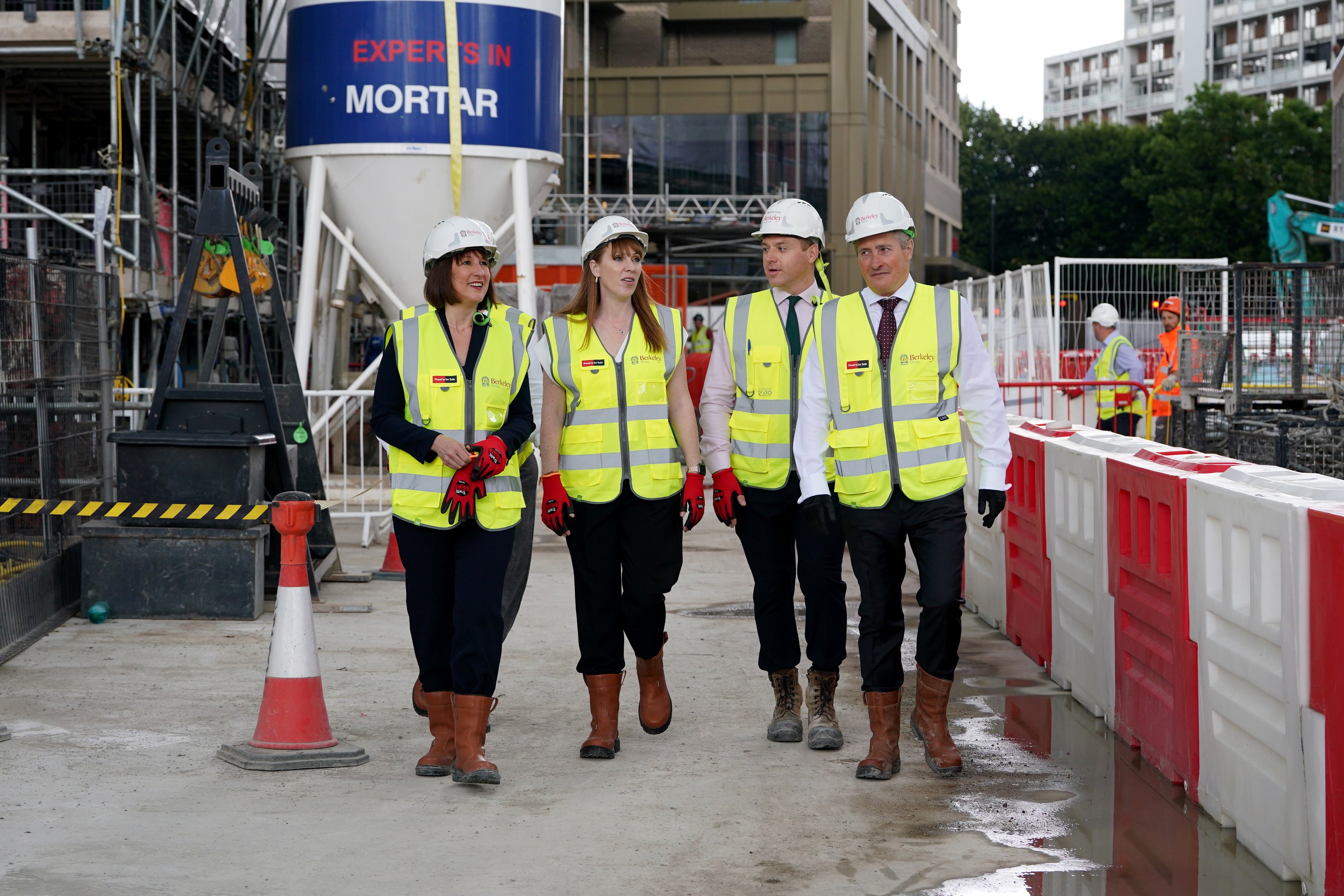
Labour ministers have been drawn into a debate around “working people” in recent days as the party vows not to raise taxes on them at Wednesday’s Budget.
In their pre-election manifesto, the party pledged not to increase income tax, national insurance, or VAT as part of their commitment to keep taxes low for these “working people.”
But other rumoured tax rises have led critics to question who exactly falls under Labour’s definition of ‘working’.
There’s no tax rise that can avoid everyone’s pockets, but with around 50 per cent of UK citizens considering themselves working-class, Labour has been pressed to clarify who falls under the party’s definition.
Here’s what Labour ministers have said:
Not landlords or stockbrokers
Speaking in Birmingham ahead of the Budget, Sir Keir Starmer said the UK’s working people “know exactly who they are.”
“I know some people want to have a debate about this”, he said, “and I know there will always be the exception that proves the rule.”
The prime minister was making a subtle dig at the row, after being drawn into explaining his definition the week before on Sky News. Asked whether he considered people who get additional income from assets such as shares or property, he replied they “wouldn’t come within my definition.”

Sir Keir added that a working person is someone who “goes out and earns their living, usually paid in a sort of monthly cheque” and who can’t “write a cheque to get out of difficulties”.
The prime minister’s spokesman later clarified that people with a “small amount of savings” are still defined as working people. This could include cash savings or stocks and shares in ISAs.
But the omission of people who make a primary living from rental income or profits on shares would suggest they do not fall under the prime minister’s definition.
“Workers who graft every day”
Rachel Reeves’ definition might be a little simpler. She says the Budget will be one for “hardworking families,” people who are “strivers” and who “graft every day”.
Writing in the Sun on Sunday, the chancellor took more than a few cues from 2010 chancellor George Osbourne’s phrasebook as she outlined her vision for the country.
“I’ve got your back. This is your Budget. I will deliver for you. It’s a Budget for the strivers,” she wrote.
Ahead of the event, Ms Reeves has received some criticism over rumoured plans to increase employers’ national insurance contributions (NICs).
Although this is not technically a tax on workers, Institute for Fiscal Studies director Paul Johnson pointed out that the impact on wages would make it a “straightforward breach” of Labour’s manifesto.
“People who go out to work”
Speaking on BBC Radio 4’s Today programme, Treasury minister James Murray said: “Working people are people who go out to work for their income.”
Refusing to be drawn in on whether landlords fall into this category, he said “we’re talking about where people get their income from,” he said, with the Budget looking to protect people who “get their income from work”.

Education secretary Bridget Phillipson took a similar stance, telling the BBC’s Laura Kuenssberg that working people are those “whose main income arises from the fact that they go out to work every day”.
However, the minister avoided answering whether people who own small businesses are considered working people.
Anyone ‘failed’ by the Conservatives
Covering for Sir Keir at PMQs, deputy PM Angela Rayner was asked by her Tory opposite number Oliver Dowden how she would define a working person.
“The definition of ‘working people’ is the people who the Tory party have failed for the past 14 years,” Ms Rayner replied.
Pressed on whether she considers the UK’s five million small business owners working people, Ms Rayner said: “I do not know how the shadow Deputy Prime Minister can stand there with a straight face when it was the small businesses—the working people of this country—that paid the price of the Conservatives crashing the economy.”
Wes Streeting, health secretary
On Tuesday, Wes Streeting told Sky News that he considered himself a working person, saying: “Last time I checked I was working very hard.”
However, the health secretary went on to clarify that his £160,000 salary would count him out of Labour’s group of concern.
“With the greatest respect to you and I, and the jobs that we do and the salaries we’re on,” he told interviewer Kay Burley, “I don’t think the chancellor’s worried about whether you or I are going to get by. She is worried about people on low and middle incomes.”
Ultimately, the answer to the question will prove important tomorrow when Labour decides what groups of people will need to bear the brunt of promised tax rises.
The prime minister has said before “those with the broadest shoulders” can expect to pay more – but who exactly he thinks this is will be better understood on 30 October.







